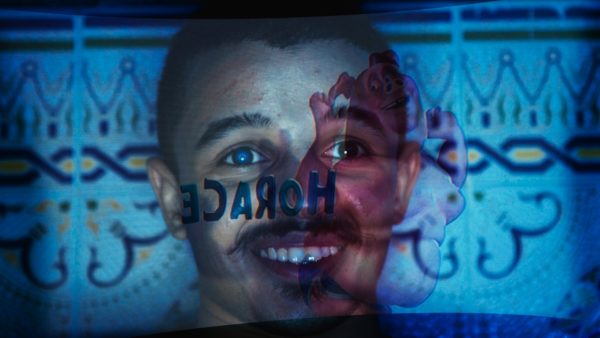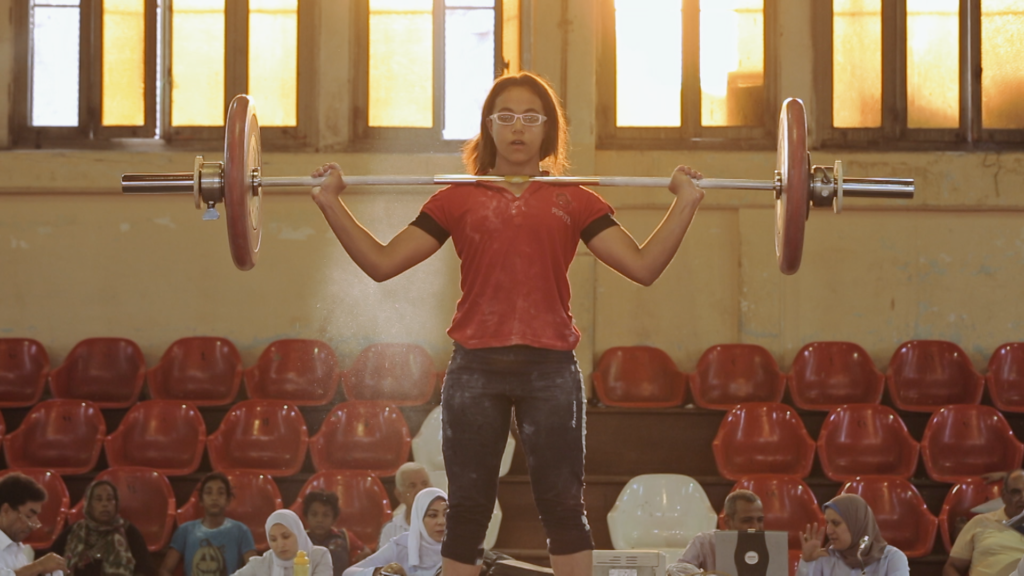São Paulo – The 3rd Arab Women’s Film Festival will start on Wednesday (22) at the Centro Cultural Banco do Brasil Rio de Janeiro (CCBB-RJ). The event presents a selection of 34 films directed by women portraying a picture of the diversity of the Contemporary Arab cinema. The festival is free, and all films feature subtitles in Portuguese and translation into Brazilian sign language. Pictured above, still of the film Lift Like a Girl.
From March 22 to April 10, short, medium-length and feature fiction and documentary films will be screened, most of them previously unreleased in Brazil, from different genres, showing the multiplicity of this cinematography through movies directed by women from eight Arab countries: Egypt, Lebanon, Palestine, Sudan, Yemen, Syria, Algeria and Morocco.
After Rio de Janeiro, the film festival goes to CCBB Brasília from March 28 to April 17, and then to CCBB São Paulo from April 22 to May 14. The films screened in Brasília and São Paulo will be the same screened in Rio de Janeiro.
Political issues, social criticism, utopias, memory, time, family and masculinities pervade the production by contemporary Arab women filmmakers in a program that includes commented sessions, roundtables, and a masterclass with award-winning director Eliane Raheb, who comes to Brazil especially for the event and will give the class “Creating Characters in Documentary Cinema” on April 2 (Sunday).

By Raheb, the festival presents the documentary Miguel’s War, a film previously unreleased in Brazil that premiered in the Berlinale section Panlorama in 2021 and won the Teddy Award for Best Feature Film, among other prizes. Raheb comments on her film on April 6 (Thursday).
Other filmmaker that is coming to Rio de Janeiro for the festival is Syria’s Soudade Kaadan, who will comment on her movie Nezouh on April 7 (Friday), a drama film where 14-year-old Zeina and her family are the last to have stayed in their besieged hometown of Damascus, Syria. The movie was the winner of the Audience Award at the Horizons Extra section at Venice Film Festival.
The opening film of the 3rd Arab Women’s Film Festival is the previous unreleased in Brazil feature film Lift Like a Girl by Egyptian director Mayye Zayed. The Golden Dove winner documentary tell the story of a 14-year-old girl who trains in the elite champion training facility in Egypt to compete internationally as a weightlifter.
Other feature films in the program are premiering in Brazil like Foragers by Palestine’s Jumana Manna, which depicts the dramas around the practice of foraging for wild edible plants in Palestine with wry humor and a meditative pace; Purple Sea by Amel Alzakout and Khaled Abdulwahed, a documentary showing the boat course from Turkey to Greece taken by the director; The Zerda and the Songs of Forgetting and The Nubah of the Women of Mount Chenoua by Algerian writer Assia Djebar, who died in 2015; and the restored copy of The hour of liberation has arrived by Lebanese director Heiny Srour, the first film by an Arab woman to be selected and screened at the Cannes Film Festival

Of the 21 short films to be screened, 14 are premiering in Brazil like As If No Misfortune Had Occurred in the Night by Palestinian director Larissa Sansour; Trilogy: Life on the CAPS by Moroccan artist Meriem Bennani; and The Window by Lebanon’s Sarah Kaskas.
The program also includes tributes to filmmakers Meriem Bennani (Moroccan visual artist who works with animation and contemporary art), Azza El Hassan (Palestinian director who founded film restoration, curatorship and production project The Void Project) and Basma Alsharif (Palestinian visual artist and director).
By Morocco’s Meriem Bennani, the festival screens Trilogy: Life on the CAPS and her short film 2 Lizards, both unreleased in Brazil. By Palestine’s Basma AlSharif, three short films: Home Movies Gaza, A Field Guide to the Ferns, and We Began by Measuring Distances. Palestinian director Azza El Hassan is represented by her two feature films News Time and Kings and Extras.
This year’s edition is curated by Brazil’s Analu Bambirra and Carol Almeida and Egypt’s Alia Ayman. “In its third edition, the festival reaffirms its interest in presenting a portray of the Arab film production. In this edition, besides noticing the intersection of cinema and visual arts (through directors like Meriem Bennani, Basma Alsharif, Larissa Sansour and Jumana Mana), we reinforce how diverse and rich the Arab cinema is, going from traditional narratives to new film forms and experiments. The films that we show represent fresh images, ones we believe the Brazilian should have more access to,” the curators were quoted as saying in a statement.
The project is held by Partisane Filmes, sponsored by Banco do Brasil and supported by Arsenal – Institut für Film und Videokunst.
To watch the movies, you have to take the ticket at the box office of the CCBB or on the website, starting 9 am on the day of the session. For more information and the full program of the festival in Rio de Janeiro, visit its website.
Translated by Guilherme Miranda




